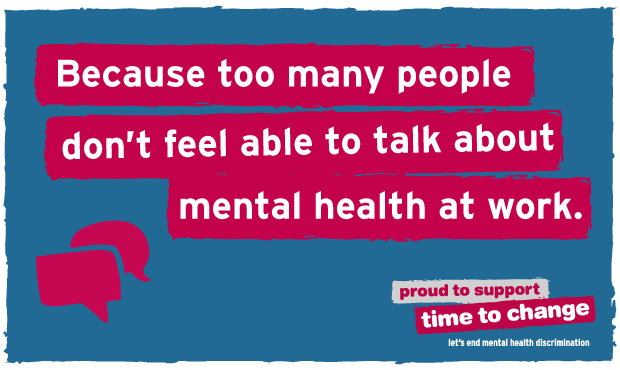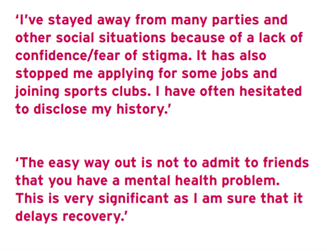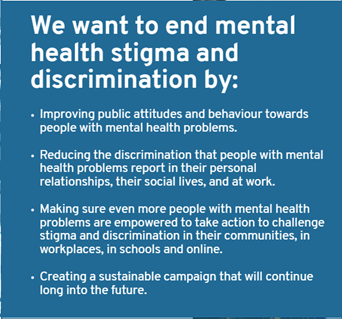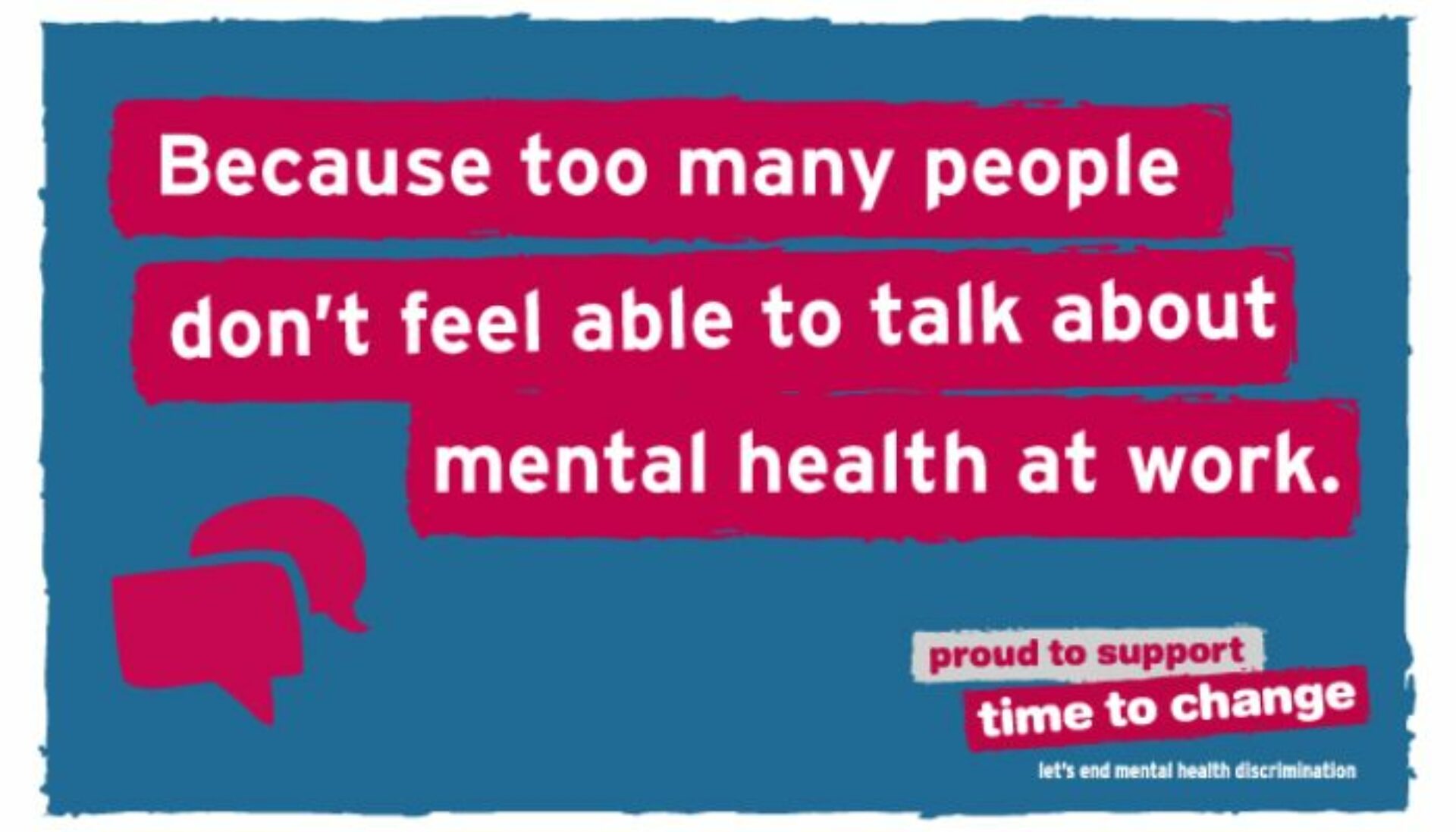The end of Time to Change marks a personal milestone for McPin founder Vanessa Pinfold, as she shares how McPin has supported the anti-stigma campaign and also been shaped by it.

The end of the Time to Change (TTC) programme – a campaign launched in 2007 to reduce mental health-related stigma and discrimination – is personally significant for me. This is because I was involved in setting it up more than 15 years ago, while working at the charity Rethink Mental Illness as Director of Research and Mental Health Promotion.
A proud moment

It seems like a very long time ago when, back in 2006, I wrote a research review on mental health stigma for Comic Relief, to take to their trustees to begin the process of developing a pitch for a campaign.
Later, around 2010/2011, I was part of the bid team alongside Sue Baker who put together an application for sustained funding. It took months of work but when millions of pounds were invested, it was one of my proudest moments at Rethink.
As well as giving the campaign a huge boost, it also meant that the lived experience leadership programme in TTC could become more central. That was a criticism of the first few years and is an aspect of all work in mental health research, as well as something I am passionate about. It was something that I felt was so essential to mental health research that when I set up the McPin Foundation as a research unit a year later, ‘expertise from experience’ would be its driving ethos.
Building a social movement

The TTC team has worked tirelessly building a dedicated social movement of people addressing mental health stigma and discrimination. Jo Loughran, most recent director of Time to Change (and previous McPin Trustee), reminded us in her blog that at the heart of the campaign was the ambition to mobilise more open conversations about mental health. I think they achieved that.
Lots of people have found their voice and are talking more openly about mental health struggles, something that Covid-19 has also accelerated. On a societal level, statistics tell us that public attitudes have shifted by 13% since 2008, which equates to 5.4 million improved attitudes (see the latest impact report from the Time to Change team).
Then there are the ripple effects: organisations have pledged to change workplace culture and schools have embraced mental health awareness lessons. And this is only scratching the surface – see the TTC legacy video for a sense of what they achieved.
Stigma research and our work at McPin
There is lots to build on going forwards to keep the momentum going.
At McPin, we will continue the spirit of TTC by weaving anti-discrimination work into all our projects. That starts with the people working for us. Some of our job roles have “peer” in the title, which indicates a personal experience of mental health issues; not all choose to include this though, as we respect personal preferences over identity profiles.
Our staff use lived experience leadership in their work and write about it as a strength. We look to provide an environment where everyone can thrive – no one should experience discrimination, so we and other organisations need to keep calling out and sustaining pressure for change.
One of our contributions to Time to Change was an evaluation of their early schools programme. That legacy remains here as we develop our Young People’s Network – a community aged 13 to 25 who advise on mental health research relating to children and young people. That includes stigma as a topic to study in itself, as well as being part of the social movement that openly talks about mental health struggles.
The network’s involvement with the Keep Cool project is a great example of this – developing engaging, evidence-based tips to help young people manage their mental health. We continue to look for more opportunities to give young people a platform to develop their own work and careers.
Our stigma research work also continues, as we are involved in a small way in a study called Let’s Talk led by researchers at the University of Manchester. It’s all about opening up conversations for service users to talk to practitioners, particularly peer support workers, about their worries and concerns around mental health stigma and dealing with feelings generated by stigma and discrimination.
What comes next?
McPin and the rest of the mental health sector must keep working to tackle mental health discrimination as it is still a major problem with many impacts, and the next stage of this should take a more intersectional lens. Mental health discrimination is often interlinked with other forms of negative attitudinal and behavioural actions – by race, class, educational attainment, gender, sexuality and geography, as well as disability.
Yes, more people are talking about mental health and attitudes are better than they were, but does this mean things are better for everyone? Do peer/lived experience researchers have parity with those who don’t overtly draw on their lived experience in their work? When people reveal a mental health condition to their employer, who is given the support they need and who isn’t? Can we encourage more conversations about discrimination experienced by racialised communities?
The fight isn’t over yet.
Subscribe to the McPin newsletter to stay up to date with our work or follow Vanessa on LinkedIn
Vanessa Pinfold is Research Director at McPin.
Read our second Time to Change blog to find out how the campaign helped one of McPin’s peer researchers started in her career.
